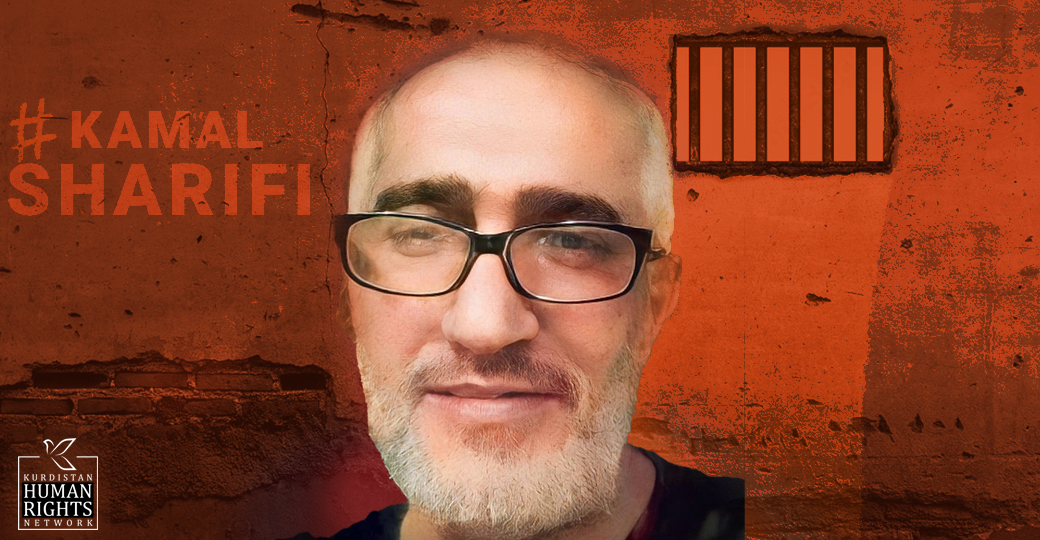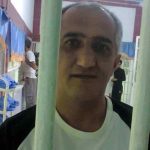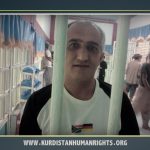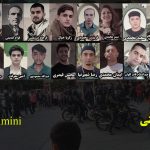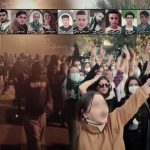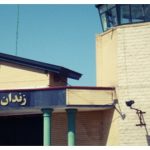Kamal Sharifi was arrested several times in the years 1988 and 1990 on charges of “membership in anti-state groups” and “illegal border crossing”, resulting in a total sentence of one year in prison and 80 lashes.
He became a member of the Democratic Party of Iranian Kurdistan (PDKI) in the Kurdistan Region of Iraq in 1991 after leaving Iran.
Arrest
On 25 May 2008, Sharifi was arrested by the Ministry of Intelligence while he was conducting organisational activities in Saqqez with another party member. During the arrest, his companion was shot dead by the security forces.
After his arrest, Sharifi was taken to the Islamic Revolutionary Guard Corps (IRGC) base in Saqqez and transferred the next day to the Ministry of Intelligence detention centre in Sanandaj.
He was interrogated for six months in this detention facility and subjected to severe physical and psychological torture for forced confessions.
During this period, he was denied the right to meet his family and to have access to a lawyer.
Judicial Process
Sharifi’s trial took place on 10 December 2008 in Branch One of the Islamic Revolutionary Court in Saqqez, presided over by Judge Shayegh, on charges of “enmity against God” (moharebeh) through “armed rebellion” against the Islamic government and membership of the Democratic Party of Iranian Kurdistan (PDKI).
Three days later he was informed that he had been sentenced to 30 years’ imprisonment and exile in Minab Prison.
In one of his letters from prison, he stated that his trial lasted only a few minutes and that Judge Shayegh did not allow him to speak with his lawyer, Abdolfattah Soltani, during the trial.
The indictment stated that the political prisoner “is denied the right to socialize and interact with others. He is also deprived of the benefits of visits and correspondence with outsiders, and must spend the entire duration of his sentence in prison”.
After Sharifi’s defence lawyer appealed against the issued verdict, the case was referred to Branch Four of the Court of Appeal in Kurdistan Province, and the verdict was upheld in March 2009.
Current Status
After the verdict was confirmed, Sharifi was exiled from Saqqez Prison to Minab Prison on 10 May 2009.
Additional Information
– A year after his arrest, websites affiliated with the Ministry of Intelligence published a video of Sharifi’s forced confessions.
– In August 2011, Sharifi went on hunger strike in protest at his harsh conditions in Minab Prison and ended his hunger strike on the 48th day after meeting with his family. This was the only time he had been able to meet with his family since his arrest.
– In a letter published in April 2021, Sharifi detailed his plight: “For 13 years, I have submitted more than 20 written requests for leave to the prosecutor, the head of the judiciary, and judicial officials in Hormozgan and Kurdistan provinces. All have gone unanswered. After suffering a stroke, the effects of which are still visible on my face, I suffered a heart attack on 2 March [2021]. After undergoing angioplasty, I was returned to the same cell and room as before. For 13 years I have had to put up with a digestive disorder, the poor quality of prison food and the smell of opium and cannabis smoke”.
– In a letter to the Head of the Judiciary of the Islamic Republic of Iran in February 2022, Amnesty International warned of Sharifi’s physical condition and the danger to his life and called for his immediate release.
– His health has been a major concern, and he has suffered two major health crises in prison – a stroke and a heart attack – in 2012 and 2020 respectively. In March 2021, following a heart attack in prison, he was transferred to a hospital in Bandar Abbas for surgery and returned to prison without completing his treatment.
Notes:
1. Article 279 of the Islamic Penal Code: “Moharebeh (enmity against God) is defined as drawing a weapon with the intention of killing, stealing from, or intimidating people in a way that causes insecurity in the environment.” According to Article 282 of the Islamic Penal Code, “if a person commits the crime of moharebeh, they will be sentenced to crucifixion, execution, amputation of the right hand and left foot, or exile, at the discretion of the judge.”
2. The Democratic Party of Iranian Kurdistan (PDKI) was founded on 16 August 1945, with the aim of gaining autonomy for Iranian Kurdistan. According to the party’s charter, this political organisation, grounded in the “nationalist ideas and organizational structure of the Society for Kurdish Resurrection (KJK) and with a realistic and contemporary approach”, emerged as a modern entity in the political arena. KJK was the founder of the Republic of Kurdistan (22 January 1946 – 15 December 1946) in Mahabad. The republic lasted only 11 months, ending with an attack by the Iranian army, which executed its leaders, including Qazi Muhammad, the party leader and President of Kurdistan.
PDKI went through a period of armed struggle in the late 1960s, marked by internal party disputes, and ultimately, re-emerged as a political party on the eve of the 1979 revolution. Two of its leaders, Abdul Rahman Ghassemlou and Sadegh Sharafkandi, were assassinated by the Islamic Republic of Iran in Europe in 1989 and 1992, respectively. In 2006, due to heightened internal conflicts, the party split into two factions: the Democratic Party of Iranian Kurdistan and the Kurdistan Democratic Party (HDK). These two factions eventually announced their reunification on 22 August 2022, after 15 years of separation.
The party has declared its ultimate goal as “the establishment of a democratic-socialist society” and its strategic slogan as “securing the rights of the Kurdish people in Iranian Kurdistan within the framework of a federal democratic system in Iran”. The main headquarters of the PDKI is in Erbil, Kurdistan Region of Iraq.

